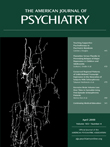Biomedical Ethics: A Multidisciplinary Approach to Moral Issues in Medicine and Biology
Ethics is pertinent to all fields of human endeavor. Ethical questions emerge in public, professional, and personal affairs. They exist in business, science, law, engineering, politics, agriculture, and military affairs. This volume is devoted to ethical dilemmas in the practice of clinical medicine (medical ethics) and related biological and technological fields (bioethics). These areas may overlap; both arenas are encapsulated in the term biomedical ethics. Although their deliberations may on occasion take a turn into obscure alleys, medical ethics and bioethics are not esoteric theoretical activities because they intimately affect our lives and the lives of the people we care about. The ability to remove your dying grandmother from a mechanical ventilator that would only prolong her suffering, your protection against becoming a research subject without having given informed consent, and your ability to obtain a fairly allocated organ for transplantation are recognized rights as a consequence of antecedent ethical debate. It is virtually certain that some matter of biomedical ethics either has or will intimately affect your life. (p. 3)
This excellent reader in medical bioethics consists of several dozen short essays written for the Lahey Clinic Medical Ethics Journal and compiled and edited by David Steinberg, M.D., the long-serving editor of that journal (formerly known as the Lahey Clinic Medical Ethics Newsletter ). The essays date from 1995 to the present and are mostly written by clinicians and bioethicists from New England, where the Lahey Clinic is located, and in a few cases, from other countries.
The book is organized into six sections, “The Nature of Biomedical Ethics,” “The Power of Language,” “Novel Technologies,” “In the Clinical Arena,” “Ethics and the Law,” and “Ethics and the Humanities.” All but the last of the sections start with well-written introductions by the editor, summarizing nicely the ideas set forth by the essayists within the sections. The last section consists of thoughtful reviews of books (e.g., The Sweet Hereafter and Darkness Visible: A Memoir of Madness ), films (e.g., Million Dollar Baby and Dirty Pretty Things ), and a play ( Wit ) that raise issues of interest to physicians and ethicists.
Biomedical Ethics contains many fine essays; standouts include explorations by Laurie Zoloth, Ph.D., and Daniel Callahan, Ph.D., of the role of religious thought in the development of bioethics and an explanation of so-called terminal sedation by Robert M. Taylor, M.D. The entire section on novel technologies is also particularly informative, including discussions of challenges presented by cloning, genetically modified organisms, and even implantable brain chips, all of which, it is argued, are likely to lead to more ethical challenges in the near future.
Psychiatrists will find all of the contributions engaging and challenging; several essays address ethical issues of particular concern to psychiatry. They include two essays on the treatment of transgenderism, one contributed by Norman Spack, M.D., and one contributed by James J. Hughes, Ph.D.; a discussion of the controversy about recovered memories by Thomas Gutheil, M.D.; a proposal regarding the legal disposition of maternal infanticide by Margaret Spinelli, M.D.; and a perceptive review by the editor, David Steinberg, M.D., of Kay Redfield Jamison’s account of her experience with bipolar disorder, entitled An Unquiet Mind .
A minor complaint about the editing of the collection is the book’s failure to include the original publication date of the essays, which would facilitate the reader in placing them in the context of the time when writers addressed quickly evolving topics such as stem cell research. Despite that flaw, Biomedical Ethics is a highly readable survey of contemporary thought on a wide range of challenging moral issues confronted by physicians and other health care workers and is highly recommended.



